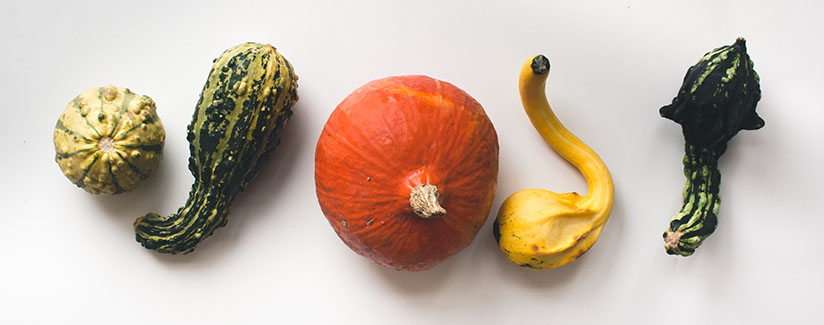
VIDEO: Is There a Nutritional Difference Between Genetically Modified and Non-Genetically Modified Foods?
11/09/2012
We gathered questions from consumers about foods grown using genetically-modified organisms. From those questions, we developed a five-part video series to address the many angles of this topic, including general information, food safety, nutrition, labeling and environmental impacts.
Registered Dietitian and past president of the Academy of Nutrition and Dietetics, Connie Diekman, links up with Farrah Brown, a part-time nurse and full-time mom, to talk about whether genetically-modified foods are more or less nutritious than other foods.
We’re interested in understanding what additional questions you have for Connie. Feel free to submit questions below in the comments or here.
What did other experts say about genetically modified foods, related to nutrition and safety?
Are GMO fruits and vegetables healthy? What about nutrition? Are GMO fruits and vegetables less nutritious than non-GMO or organic fruits and vegetables?
Dr. Peggy Lemaux, Cooperative Extension Specialist, Department of Plant and Microbial Biology, University of California-Berkley:
It’s a good question. Foods that have been genetically modified undergo testing for safety, health and nutrient value. The nutritional value of GMO foods is tested and compared against non-GMO foods. Numerous studies have shown no nutritional differences between commercially available GMO and non-GMO foods. In fact, genetic modification can actually improve the nutritional content of some foods, for example low linoleic acid canola oil that can reduce trans fat content. In these cases, the foods must be labeled to show the nutritional differences according to FDA policy.
Dr. Wayne Parrott, Professor, Plant Breeding and Genomics, University of Georgia:
It is important to note that only one GMO vegetable is currently commercially available – squash/zucchini. This vegetable, along with all other GMO foods, has undergone extensive testing to ensure the nutritional content. Before any GMO can come to market, it must undergo extensive testing to ensure that the content of vitamins, minerals and other nutrients is not inadvertently altered during the final process. For every study that finds nutritional superiority in organic produce, another finds it in GMO produce. The bottom line is to make sure you eat as many fresh fruits and vegetables as you can, regardless of whether they are organic or GMO.
Dr. Lemaux:
I’d like to add that, in general, there are not a large number of peer-reviewed studies analyzing nutritional differences between GMO and non-GMO foods. Strictly from a nutritional perspective, there is not enough data at present to show nutritional benefits from GMO or non-GMO, conventionally or organically grown foods that favors consuming them for health benefits. If the goal, however, is to promote healthy eating, it is more important for consumers to focus on eating a healthy, balanced diet, rich in fruits and vegetables. There is convincing evidence that diets rich in fresh fruits and vegetables, regardless of the methods used to produce them, improve health and are associated with reduced frequency and severity of a number of health conditions.
Do GMOs cause allergies?
Dr. Lemaux:
GM foods that are commercially-available (that is, in the grocery store), are not likely to cause allergic reactions any more so than non-GM foods. Food allergies are nothing new, and under the FDA’s biotechnology food policy, GMO foods must be labeled as such if the genetic information comes from one of the eight most common allergy-causing foods, unless the new food is shown to be allergy-free. Those foods are dairy, eggs, fish, shellfish, tree nuts, wheat, soybeans, and peanuts.
Dr. Bruce Chassy, Professor Emeritus, Biotechnology, University of Illinois:
Food allergies dramatically change the lives of people who have them. Fortunately, only a very small percentage of people are allergic to any one food. This is because food allergy is almost always caused by specific proteins present in the offending food, but the great majority of proteins (>99.9999+%) that we consume do not cause allergies. It is important to stress that there is no reason to believe that GM foods might cause allergies, and to date, none has.
Dr. Parrott:
The regulation goes on to say that labels are not required if they prove the gene in question is not what makes the food allergenic, which is most likely the case today, given that extensive allergy testing that takes place.
Dr. Lemaux:
All GMO foods undergo food safety testing that focuses on the source of the gene or protein product that has been introduced into the food. Even so, no food product can be deemed 100% safe, whether it be conventional (non-GMO), GMO or organic. For example, peanuts can cause severe allergies regardless of how they’re grown – so they would be considered unsafe for some people.
Dr. Martina Newell-McGloughlin, Director, University of California Systemwide Biotechnology Research and Education Program (UCBREP); Co-Director, National Institutes of Health Training Program in Biomolecular Technology; Co-Director, NSF IGERT CREATE Training Program; Adjunct Associate Professor, Department of Plant Pathology, University of California-Davis:
No. In fact, the work that is being done in GMO research can, in fact, reduce allergies. There are very specific sets of indicators that determine whether a specific protein in GMOs would cause an allergic response. Those proteins that are difficult to digest cause an allergic response, causing the body to create antibodies to them. This can happen with a number of proteins, but there is nothing inherent about biotech products that would cause allergies.
Are there health risks associated with consuming GMOs?
Dr. Newell-McGloughlin:
No. GMOs are more thoroughly tested than any product produced in the history of agriculture. We use many methods to introduce desired traits – to try to get specific characteristics into our crops. With GMOs, they are thoroughly tested before any product is released into the marketplace. In all the risk assessments in over 15 years of field research and 30 years of laboratory research, there hasn’t been a single instance where there was a health risk associated with a GMO product.
Some groups say the FDA’s research on GMOs’ impacts on health is flawed. What are your thoughts on that?
Dr. Newell-McGloughlin:
In the U.S., GMOs are more highly regulated than any other methods to introduce traits into crops today, by three different agencies:
- Food and Drug Administration
- United States Department of Agriculture: Animal and Plant Health Inspection Service (APHIS)
- Environmental Protection Agency
The primary body that regulates the commercialization of GMOs is USDA-APHIS. This is a lengthy process which, for most regulation, takes several years to determine whether approval will be granted. No other product or system that is used to introduce desired traits undergoes the same level of scrutiny as do the products of modern biotechnology.
Dr. Parrott:
Although there is no indication that the FDA has made a wrong call on any GM product, the point remains that we are in a global economy. Thus, it is not just FDA who approves these foods, but also FoodCanada, the European Food Safety Authority, the Food Standards for Australia and New Zealand, and various agencies in Japan and Korea, among others. It is one thing to say that FDA’s procedures might be flawed; it is another to say every major food safety agency is flawed. Thus far, I am not aware of any situation whereby one agency gave a GM product a clean bill of health and another failed to do so.
Dr. Chassy:
There was never any scientific reason to believe that foods produced using biotechnology present any new, different or special hazards. From a scientific perspective they pose even fewer hazards than the conventionally bred crops that we have been eating safely for millennia. The pre-market regulatory review is intended to insure the consumer that GM foods have been checked for safety before they go to market. In the heat of the argument, we often lose sight of the fact that every expert analysis of the safety of GM crops has concluded that they are as safe as any other crop.
Still have questions? Ask an expert here.






























